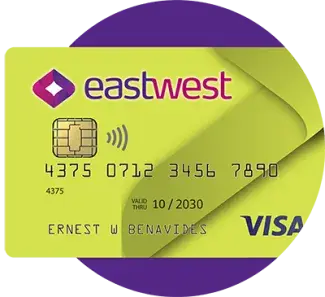Having both a primary and a supplementary credit card can be a powerful way to organize your finances. With more lines of credit comes a greater degree of flexibility, convenience, and financial security, all of which can make it much easier to track your spending and set a realistic budget. Are you a sole primary credit card holder and perhaps wanting to share EastWest credit card access with a family member? Do you want to use a supplementary card to streamline your expenses? Managing both accounts wisely is key to avoiding unnecessary debt and maximizing benefits. Here are essential things to keep in mind when handling a primary and supplementary credit card.
Understand Your Credit Limit
When you’re giving supplementary credit card access with others, one of the first things you should take note of is your total credit limit. This amount is shared between the primary and supplementary cards, meaning all transactions count toward a single spending cap. If your supplementary cardholder makes a large purchase, it directly affects how much you can still spend. To avoid overspending, set clear expectations on usage with whoever you’re sharing the card with and monitor transactions regularly.
Set Spending Limits for Supplementary Cardholders
Most banks—including EastWest—allow you to set a spending limit for supplementary cardholders. This feature is especially useful when giving a card to a younger family member or employee. For example, if your child has a supplementary card for school expenses, you can allocate a specific sub-limit for them that will be taken from your own primary card’s credit limit to ensure responsible use. They can use the card for when they need emergency funds or have to buy materials for a small school project; if they have a substantial purchase that can wait a little longer, they can set aside funds for it using an EastWest savings account. Giving your child access to financial tools provides them the opportunity to learn to manage their funds and use it wisely.
Track Transactions and Statements Regularly
Both primary and supplementary card transactions will reflect on your monthly statement. This makes your statement a convenient reference if you want to reassess your budget and spending. Additionally, reviewing statements regularly ensures that all charges to your credit card are correct. Be extra diligent as you now have to review two documents instead of just your own.
Be Aware of Fees and Charges
As you may very well know, credit cards come with various fees, including annual fees, interest rates, and penalties for late payments—and these costs are applied to the primary credit card account. So, before using a supplementary card, make sure you understand the additional fees and how they may impact your finances. This ensures that you won’t be caught unaware by the cost of your financial choices.
Pay ALL Your Balances in Full Whenever Possible
Carrying a balance on your credit card accrues interest, which can quickly add up if left unpaid. To avoid unnecessary debt, aim to pay off the full balance each month. If the supplementary cardholder is responsible for a portion of the expenses, ensure they pay or reimburse you before the due date. This way, you can prevent late fees and avoid finding yourself in a financial bind.
Establish Clear Rules for Usage
Whether your supplementary cardholder is a spouse, sibling, child, or employee, it’s important to establish clear guidelines for spending. Discuss what types of purchases are acceptable, how much they can spend, and when they should inform you about transactions. This prevents misunderstandings and ensures that the financial tool they have access to will make it easier for both of you to manage your obligations.
Take Advantage of Rewards and Perks
Many credit cards offer rewards such as cashback, travel points, or discounts on purchases. EastWest, for example, periodically offers promos for travelers who use their credit cards overseas. If you want to maximize these opportunities, keep in mind that primary and supplementary cardholders may or may not contribute to the accumulation of rewards. So, if your card offers cashback on specific categories, allocate purchases accordingly and make it a point to pay using your credit card for those specific expenses.
Protect Your Card Information
Credit card fraud is a real risk, so take precautions to safeguard your card details. Ensure that both you and your supplementary cardholder practice safe transaction habits, such as using secure online payment portals and reporting lost or stolen cards immediately. It’s also a good idea to be aware of the common tactics criminals use to obtain credit card information, such as phishing and SMS hijacking. This will help you immediately recognize if you’re being targeted by a scammer and take steps to avoid falling for their schemes.
Monitor Credit Utilization to Maintain a Good Score
Your credit utilization ratio—the percentage of your available credit that you use—affects your credit score. A high utilization ratio can lower your score and impact future applications for loans and other credit products. If the primary and supplementary cards are being used frequently, try to keep overall spending below 30% of the total credit limit to maintain a healthy credit profile.
Be Prepared for Emergencies
A credit card can be a lifesaver during emergencies, but it’s crucial to use it wisely. If you intend to use the supplementary card for emergencies, set guidelines on what qualifies as an emergency expense. Additionally, have a backup plan for repayments to prevent accumulating high-interest debt.
Consider Who You Issue a Supplementary Card To
While supplementary cards can be a great tool for family members or trusted individuals, it’s important to issue them with caution. Only provide a card to someone you trust to be financially responsible. Remember, as the primary cardholder, you are ultimately responsible for any charges made on the supplementary card.
Know When to Revoke or Adjust Supplementary Privileges
If the supplementary cardholder is not using the credit card responsibly, don’t hesitate to revoke or adjust their privileges. Most banks allow you to cancel a supplementary card or modify its spending limits at any time to ensure that your finances remain secure and that you are not burdened with unnecessary debt.
Effectively managing a primary and supplementary credit card requires careful planning, clear communication, and financial discipline. By staying proactive and setting guidelines, you can maximize the benefits of having both cards while keeping your finances in check. It also helps to use the tools from your credit card provider that are designed to make it easier to manage your credit card use. If you’re an EastWest credit card holder, check out the EasyWay app and see just how convenient it is to manage your finances with EastWest. Apply for a credit card today or check out our other financial products and services.
Apply for EastWest Credit Card?
With a variety of options to suit different needs, EastWest Bank offers competitive rates, valuable rewards, and excellent customer service.








